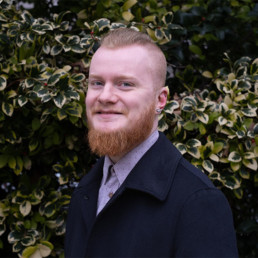
Written by Rob Ward
Education Programmes Manager at Just Like Us
LGBT+ inclusive education has a history of being intensely scrutinised. Social media continues to bubble away, highlighting the dynamic landscape of support for, and respect of, LGBT+ people, meanwhile educators grapple with exactly what is classed as “timely” and “age-appropriate” for LGBT+ inclusive education within RSE.
Without skipping a beat, Ofsted is fulfilling its commitment to reviewing schools for their adherence to RSE guidance – guidance which became compulsory for schools in the midst of a period of upheaval in education and wider society not seen in living memory. Educators currently find themselves juggling advice from exam boards, a student body still reeling from isolation and disruption over the last two years, and ever-growing working hours to try to bridge the gap between the two. The backdrop that LGBT+ education finds itself in today could not be more crowded, with competing stakeholders from across society offering opinions on what should be happening in our schools.
Independent research published by Just Like Us on the most varied stakeholder of them all – children’s parents – has found that the overwhelming majority is supportive towards LGBT+ inclusive education. 82% of UK parents believe that it is ‘important’ for their children to learn about LGBT+ families, such as some pupils having gay parents. However, parents also reported a lack of resources to help with this – only 34% said they felt their school was adequately resourced to help educate their children and 33% have never spoken to their child about what LGBT+ means.
In the context of increased commentary and scrutiny on LGBT+ in education, these findings highlight the importance parents place on fully inclusive education for their own children. It’s a clear signal that parents are looking for teachers to take the lead and support them in providing high quality, fully LGBT+ inclusive education for their children, as they do across other areas of the curriculum. Students report the same; previous research has highlighted how the majority of young people are looking for LGBT+ inclusive RSE education, alongside subject curriculums that embed LGBT+ inclusion throughout (79% and 67% respectively). More than half of LGBT+ pupils are looking for support from their teachers to set up inclusive initiatives like Pride Groups for LGBT+ and ally pupils to help a wider network of their peers.
When taken together, these findings should represent a green light to educators to push for inclusive education. Parents are expecting it, students are asking for it, and all the while Ofsted is continuing to check for it. So how can teachers go about it?
Engaging in visibility days, LGBT+ History Month and School Diversity Week throughout the year can be powerful, visual ways that a school can demonstrate its commitment to building safe, inclusive environments for all its students. Sue Sanders’ work on usualising vs actualising LGBT+ topics within subject curricula also offers a strong framework to review and edit schemes of work to embed a variety of stories and viewpoints within existing topics across the school.
Beyond engaging in visibility days and reviewing who and what gets taught about, setting up LGBT+ and ally groups is the best way to make long-term change. We help schools to set up and run these on Just Like Us’ Pride Groups programme, by providing staff and Student Leader training as well as ready-to-go resources for just £99 a year. Pride Groups also help to incorporate inclusion and celebration of LGBT+ lives within a school’s ethos, and provide a platform for student voice to help guide further development of inclusivity within schools long term.
While the backdrop for LGBT+ inclusion may be loud, dissonant and confusing right now, educators are used to cutting through this. Parents want their children to be educated about LGBT+ lives, while students continue to show a desire to learn about them. More than ever, teachers should feel empowered to explore how they can incorporate LGBT+ stories within their teaching and dispel misinformation, putting their fine-tuned teaching practice and pedagogy to use to meet their students where they are, helping them along their journey to exploring and celebrating the LGBT+ lives and history around them.

